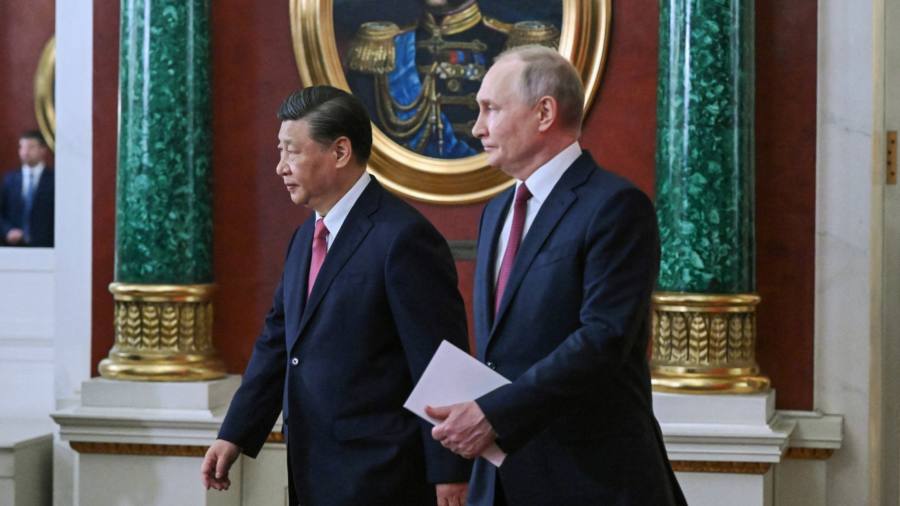Brussels needs to respond to Beijing’s global ambitions after the EU’s top diplomat warned that China would use Russia’s failure in Ukraine to “use geopolitical advantage”.
EU foreign policy chief Joseph Borrell urged member states to find a “coherent strategy” to deal with China in response to Beijing’s rising nationalism and “intensified US-China competition”.
“China’s problem is much more complex than Russia’s,” Borrell wrote in a private letter to EU foreign ministers, seen by the Financial Times. “China’s ambition is clearly to create a new world order centered on China.” . . Russia’s defeat in Ukraine will not derail China’s trajectory. China will try to use its geopolitical advantage,” he added.
The letter is seen as the starting point for two days of discussions between EU foreign ministers, which are due to start on Friday to draft a new policy against Beijing, which EU leaders will discuss next month.
According to people familiar with the matter, the Stockholm talks are expected to focus on adjusting the EU’s current China strategy, adopting a three-pronged approach of “partners, competitors, and opponents”, and paying more attention to the “rival” part. An EU diplomat said the shift “comes from a careful analysis of what China is doing”.
In a letter sent on Thursday, Borrell also underscored the EU’s willingness to engage “seriously” with Beijing on the Ukraine war, despite Beijing’s rhetorical support for Moscow. The EU “welcomes all the really positive steps China is taking to find a solution,” he said.
Chinese leaders have made peace proposals but have been criticized in the West for siding with Moscow and failing to engage with Kiev. Fourteen months after Russia’s all-out invasion of Ukraine last February, Chinese President Xi Jinping finally called Ukrainian President Volodymyr Zelensky, but the gesture was largely seen as an attempt to repair tensions with European capitals relation.
In the letter, Borrell wrote that the EU should not seek to “stop the rise of emerging powers”, a nod to member states’ reluctance to accept a tougher U.S. approach to China.
He has also touted the EU’s “de-risking” strategy, which he sees as less risky than the US’s decoupling with China. The strategy was originally proposed by European Commission President Ursula von der Leyen when she called for “new defense tools” for areas such as quantum computing and artificial intelligence.
Brussels should also take China’s influence into account when dealing with low-income countries, Borrell wrote, warning against expecting these countries to be “on one side or the other”.
Most developing countries have been reluctant to support Western sanctions against Russia, while China has seized the opportunity to portray itself as a nonaggressive power that neither wages war nor pressures other countries to impose economic constraints on its rivals.
“The EU must be aware that many countries see China’s geopolitical influence as a counterweight to the West and Europe,” Borrell wrote. “They will be looking to strengthen their wiggle room rather than pick sides.”


